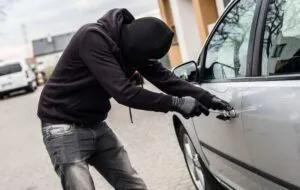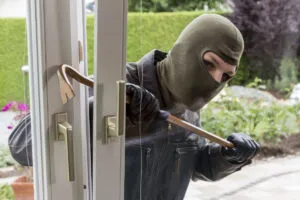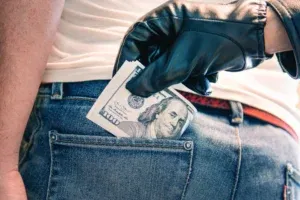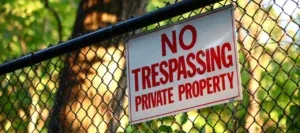California Looting Lawyer – Penal Code 463
Should You Get An Attorney For Your Looting Charge?
Whether committed as a form of protest or out of desperation in the wake of a natural disaster, looting is a form of criminal wrongdoing generally characterized by theft while a state of emergency is in place. Because looting occurs during particularly vulnerable times, there may be strong defenses that can be made on behalf of those who have stolen goods and been charged with looting as a result. If you’re facing accusations of looting, call My Rights Law theft attorney at (888) 702-8845 or complete our secure web form today for a confidential, no-risk, free case evaluation. The sooner we’re alerted to the circumstances that you’re facing, the sooner we can begin building a strong defense on your behalf.
- 1. How Does California Law Define Looting?
- 2. Criminal Offenses Related To PC 463 Looting
- 3. What Are The Elements Of PC 463 Looting?
- 4. What Is The Punishment For Violating CA PC 463 Looting Laws?
- 5. Defenses Against Charges Of Looting
- 6. Experienced Looting Defense Attorney In CA
- 7. My Rights Law California Looting Lawyers
How Does California Law Define Looting?
The term “looting” is often broadly used to describe any theft of goods during a chaotic time. However, California Penal Code Section 468[1] is more specific in its interpretation of this crime and legally defines as follows.
“For any theft or burglary to be considered looting under California law, it must occur when a state of emergency has been declared and remains in place. States of emergency are usually declared by the governor but may also be declared by other governing bodies, particularly at a local level. Commonly, states of emergency are declared in California in response to earthquakes, wildfires, riots, massive protest activity, drought, and flooding.”
Criminal Offenses Related To PC 463 Looting
If you have been charged with looting, it is possible – and perhaps even likely – that you’re also facing related criminal charges. Common charges often paired with looting charges include vandalism, criminal trespass, and participation in a riot. Participation in a riot is a particularly severe charge to levy against a looter, as conviction of this offense could result in incarceration in state prison for anywhere between two and four years.
Understand that if you’re facing more than one charge, you can be convicted and sentenced to punishment for more than one crime. Just as a prosecutor must successfully prove that your conduct meets each element for every charge that you’re facing, so must our legal team successfully build a defensive strategy against each charge that you’re facing to minimize your risk of suffering negative consequences at the conclusion of your case. Treat the charges against you seriously. You can trust that a prosecutor is doing the same.
What Are The Elements Of PC 463 Looting?
Before a prosecutor can meet the burden of proof required to convict you of looting, the prosecutor must meet every element of the crime as defined by California state law. There are three primary elements of looting as detailed in the California Penal Code.
- First, the defendant committed petty theft, grand theft, or burglary.
- Second, the defendant intended to commit petty theft, grand theft, or burglary.
- Third the defendant committed theft or burglary during a state of emergency in a location named or otherwise covered by that state of emergency.
If the prosecution fails to prove any of these elements, they cannot successfully make their case that the defendant in question committed a looting offense as defined by state law. It is worth noting that acts of theft and burglary both require specific intent. This means that if the intention to deprive the owner of their property either permanently or for a significantly extended period of time is not met, the element of intent cannot be met. Similarly, if the defendant in question believed that they had the owner’s permission to take the property, they can’t reasonably be convicted of looting because the intent element of burglary or theft is lacking.
What Is The Punishment For Violating CA PC 463 Looting Laws?
Suppose you are convicted of violating California looting laws. In that case, you could be sentenced to up to three years in state prison, as looting may be classified as either a misdemeanor or a felony. Suppose your offense is classified as a misdemeanor. In that case, you’ll risk a minimum of 90 days of incarceration in county jail and a fine of no more than $1,000, and up to 80 hours of mandatory community service. By contrast, if you’re convicted of grand theft while possessing a firearm, you could face up to three years behind bars and a fine of up to $10,000.
Note that many looting charges are considered “wobblers” under California law. This means that they can be classified as either felonies or misdemeanors based on several factors. Moreover, a felony offense could carry a mandatory minimum jail sentence. Whether you are accused of looting involving petty theft or looting involving grand theft, our firm understands the unique charges levied against you, we can explain the potential risks and consequences you’ll face in the event of a conviction.
Defenses Against Charges Of Looting
It is possible to mount a successful defense against looting charges. However, doing so isn’t usually very easy. Prosecutors may only move forward with looting charges if law enforcement witnessed this conduct firsthand or they have other electronic evidence or eyewitness testimony that can aid in definitively identifying those who were involved in the looting in question. That said, successful defense strategies – such as mistaken identity or necessity – may help significantly mitigate the risk of a conviction. Additionally, procedural strategies designed to make it harder for a prosecutor to meet their burden of proof – such as excluding evidence obtained improperly – can be very effective. Know that if you choose to work with our firm, we will do our utmost to protect your rights and keep you free.
Experienced Looting Defense Attorney In CA
Looting is a kind of criminal behavior that often happens during a time of crisis or disaster. Hiring a criminal defense law firm is imperative if you have been accused of looting or any other types of property crimes. Although there are several legal defenses available to you, stealing property is a crime punished severely under California looting laws, so you want to put your best put forward by contacting an attorney to represent you.
To be found guilty of looting, a prosecutor must establish that you had the required criminal intent at the time of the looting. A conviction for looting may show up on a defendant’s criminal record, which is another reason why you want to consider fighting these charges. The district attorney in Los Angeles does not take looting incidents lightly. If you have committed an alleged crime, it is in your best interest to hire a criminal defense law firm as soon as possible to defend you against any potential convictions for property crimes. Contact a criminal defense law firm to learn about your legal defenses for allegedly stealing property.
My Rights Law California Looting Lawyers
Looting is a complex crime, partially because it often occurs during times of protest and in the wake of natural disasters. As a result, securing legal representation skilled enough to put your unique circumstances in context can help to mitigate the risk of a conviction. My Rights Law represents individuals accused of looting in violation of California Penal Code Section 468. If you’re facing a looting charge, contact My Rights Law by calling (888) 702-8845 or completing our secure web form for a free consultation.
Other theft crimes we defend include: Larceny
FOOTNOTES
[1] Penal Code 463 PC.

















